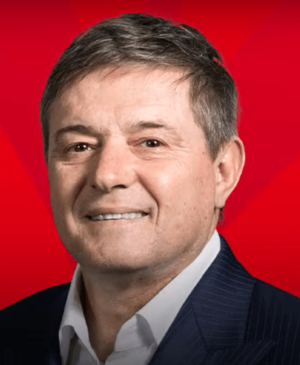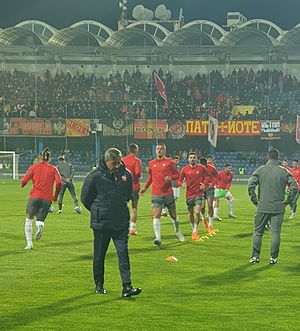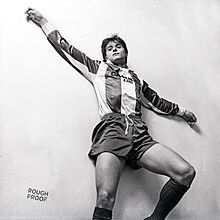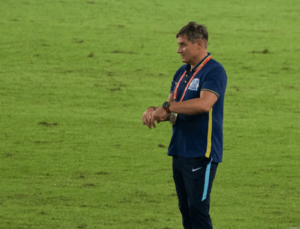Dragan Stojković facts for kids
Quick facts for kids
Dragan Stojković
|
||||||||||||||||||||||||||||||||||||||||||||||||||||||||||||||||||||||||||||||||||||||||||||||||||||||
|---|---|---|---|---|---|---|---|---|---|---|---|---|---|---|---|---|---|---|---|---|---|---|---|---|---|---|---|---|---|---|---|---|---|---|---|---|---|---|---|---|---|---|---|---|---|---|---|---|---|---|---|---|---|---|---|---|---|---|---|---|---|---|---|---|---|---|---|---|---|---|---|---|---|---|---|---|---|---|---|---|---|---|---|---|---|---|---|---|---|---|---|---|---|---|---|---|---|---|---|---|---|---|

Piksi in 2024
|
||||||||||||||||||||||||||||||||||||||||||||||||||||||||||||||||||||||||||||||||||||||||||||||||||||||
| President of the Football Association of FR Yugoslavia / Serbia and Montenegro | ||||||||||||||||||||||||||||||||||||||||||||||||||||||||||||||||||||||||||||||||||||||||||||||||||||||
| In office 2001–2005 |
||||||||||||||||||||||||||||||||||||||||||||||||||||||||||||||||||||||||||||||||||||||||||||||||||||||
| Preceded by | Miljan Miljanić | |||||||||||||||||||||||||||||||||||||||||||||||||||||||||||||||||||||||||||||||||||||||||||||||||||||
| Succeeded by | Tomislav Karadžić | |||||||||||||||||||||||||||||||||||||||||||||||||||||||||||||||||||||||||||||||||||||||||||||||||||||
| President of Red Star Belgrade | ||||||||||||||||||||||||||||||||||||||||||||||||||||||||||||||||||||||||||||||||||||||||||||||||||||||
| In office 2005–2007 |
||||||||||||||||||||||||||||||||||||||||||||||||||||||||||||||||||||||||||||||||||||||||||||||||||||||
| Preceded by | Dragan Džajić | |||||||||||||||||||||||||||||||||||||||||||||||||||||||||||||||||||||||||||||||||||||||||||||||||||||
| Succeeded by | Toplica Spasojević | |||||||||||||||||||||||||||||||||||||||||||||||||||||||||||||||||||||||||||||||||||||||||||||||||||||
| Personal details | ||||||||||||||||||||||||||||||||||||||||||||||||||||||||||||||||||||||||||||||||||||||||||||||||||||||
| Born | 3 March 1965 Niš, SR Serbia, SFR Yugoslavia |
|||||||||||||||||||||||||||||||||||||||||||||||||||||||||||||||||||||||||||||||||||||||||||||||||||||
| Occupation |
|
|||||||||||||||||||||||||||||||||||||||||||||||||||||||||||||||||||||||||||||||||||||||||||||||||||||
| Nickname | Piksi | |||||||||||||||||||||||||||||||||||||||||||||||||||||||||||||||||||||||||||||||||||||||||||||||||||||
|
Association football career
|
||||||||||||||||||||||||||||||||||||||||||||||||||||||||||||||||||||||||||||||||||||||||||||||||||||||
Dragan Stojković (born on March 3, 1965), also known as Piksi, is a Serbian football manager and former player. He played as a midfielder. Currently, he is the head coach of the Serbia national team. Stojković was a long-time captain for the Yugoslavia national team and Red Star Belgrade. Many people consider him one of the greatest footballers from Yugoslavia and Serbia.
He was a star player for Yugoslavia at the 1990 World Cup, where he was chosen for the World Cup All-Star Team. He also played in the 1998 FIFA World Cup, leading the team as captain.
He is one of only five players to receive the "Star of the Red Star" award. Even though injuries sometimes stopped him from showing his full potential in Europe, he was known for his amazing skills. He is especially famous in Japanese football.
In 2021, he became the coach of the Serbia national team. He led them to qualify for both the 2022 FIFA World Cup and UEFA Euro 2024.
Contents
Early Life and Nickname
Dragan Stojković was born in Niš, which was then part of Yugoslavia. He loved football from a very young age. He grew up in the Pasi Poljana area near Niš. He got the nickname Piksi from "Pixie," a character in the cartoon Pixie and Dixie and Mr. Jinks. Besides his native Serbian, Stojković also speaks English, French, Italian, and some Japanese.
Youth Football Journey
Stojković played in the youth system of FK Radnički Niš. When he was 14, in 1979, his talent was clear. He joined the FK Partizan under-16 team for a tournament in France. This trip was special for him. It was his first time in Belgrade, his first time traveling abroad, and his first time on an airplane.
The next summer, in 1980, Stojković again joined the FK Partizan youth squad. He played in youth tournaments in Italian coastal towns.
Club Career Highlights
Starting at Radnički Niš
Stojković played as a midfielder and sometimes as a forward. He started his professional career with his hometown team, Radnički Niš, in the Yugoslav First League. He made his first team debut at 17 years old in April 1982. This was during the 1981-82 season.
Over the next four seasons, Stojković played in 70 matches for Radnički. He scored eight goals for the team.
Moving to Red Star Belgrade
In the summer of 1986, when he was 21, Stojković joined Red Star Belgrade. He played there for four seasons. During this time, he scored 54 goals in 120 games.
By the 1989-90 season, big European clubs wanted to sign Stojković. He eventually agreed to join Olympique de Marseille. One of his most famous goals for Red Star was scored directly from a corner kick against their rivals, Partizan Belgrade.
Time at Marseille
In the summer of 1990, Stojković moved to Olympique de Marseille in France. This was a big move, and he joined a team with many famous players. The team had high hopes, with stars like Jean-Pierre Papin and Eric Cantona.
Early in his first season, Stojković got a knee injury. This meant he had to miss several months of play. He played only eleven league games that season due to injuries. In the 1991 European Cup Final, Marseille played against Stojković's old team, Red Star. Stojković came into the game late. When the match went to a penalty shootout, he told his coach he did not want to take a penalty against his former team. Red Star won the European Cup.
He then went on loan to Hellas Verona in Italy in 1991. He had a difficult season there with more injuries. After that, he returned to Marseille for two more seasons. He was part of the team that won the Champions League in 1993, but he missed the final due to injury.
Success with Nagoya Grampus Eight
In 1994, Stojković signed with the Japanese team Nagoya Grampus Eight in the J-League. He joined a team that included Gary Lineker.
He played for Grampus Eight for seven seasons, until he retired as a player in 2001. Stojković played 183 matches for the club and scored 57 goals. He was named the J-League MVP (Most Valuable Player) in 1995. He became very popular with Japanese fans, especially Nagoya Grampus supporters. They would chant "Ale Piksi" when he scored.
International Career
Playing for His Country
Stojković played 84 international matches and scored 15 goals. He played for both the SFR Yugoslavia national team and the FR Yugoslavia national team. He played in UEFA Euro 1984, the 1984 Summer Olympics, the 1988 Summer Olympics, and the 1990 FIFA World Cup. Later, he played in the 1998 FIFA World Cup and UEFA Euro 2000. His first international game was in November 1983 against France.
At the 1990 World Cup, Stojković scored both goals in Yugoslavia's 2–1 win against Spain. In the next round, the quarter-finals, Yugoslavia lost to Argentina in a penalty shootout. Stojković was one of three Yugoslav players who missed their penalty kicks.
His final international match was against Japan in July 2001.
Playing Style
Stojković was a very skilled midfield playmaker. Many people believe he was one of the best players from former Yugoslavia. He could play as an attacking midfielder, a central midfielder, or even as a forward. He was quick, smart, and hard to predict. He was known for his great vision, creativity, and passing. His excellent technique and dribbling skills allowed him to get past many opponents. This earned him the nickname "the Maradona of the Balkans." Even though he was very talented, his career was sometimes affected by injuries.
Administrative Career
Leading the Football Association
After retiring as a player in 2001, Stojković became the president of the Serbian Football Association at 36 years old. He also became a member of the UEFA technical committee and the FIFA football committee for eight years.
President of Red Star Belgrade
In July 2005, Stojković became the president of Red Star Belgrade. He took over from Dragan Džajić, who had been a very important figure at the club for many years.
First Season as President (2005–06)
One of Stojković's first decisions was to hire Walter Zenga as the new head coach. Zenga was the first foreign coach for Red Star. Stojković also helped the club get new sponsors, including Toyota.
The club focused on finding talented young players from Serbia and Montenegro. They also started bringing in affordable foreign players. The team played very well, winning the league and cup double in the 2005-06 season. They also had good games in the UEFA Cup, including a 3–1 win against A.S. Roma.
Second Season as President (2006–07)
After winning the double, fans hoped the team would stay together to try and qualify for the UEFA Champions League. However, some key players were sold. Stojković explained that these sales were needed to help with the club's financial situation. He hired Dušan Bajević as the new coach.
Red Star tried to qualify for the Champions League but lost to AC Milan. More players were sold after this. Stojković brought in some new players, including the famous Brazilian forward Aílton.
On October 12, 2007, Stojković announced he was stepping down as president of Red Star Belgrade.
Later Disagreements
After Stojković left, there were some disagreements with a group of Red Star fans called Delije. They felt he had left the club in a difficult financial state. These disagreements continued over the years. In 2012, Stojković was asked to leave a Red Star cafe by some fans. He later said he would not ask the club to pay back money they owed him from his time as president. The disagreements with some fans resurfaced in May 2022 when Stojković attended a Serbian Cup final at the stadium.
Managerial Career
Coaching Nagoya Grampus
Stojković returned to Japan to become the manager of his former club, Nagoya Grampus, in January 2008. In his first season, he led the club to third place in the J.League and to the AFC Champions League for the first time.
In a 2009 J.League match, Stojković surprised everyone by scoring a goal from his coaching area. A player was injured, so the opposing goalkeeper kicked the ball out of play. Stojković volleyed the ball, and it flew into the goal. He was sent off by the referee for this.
On November 20, 2010, Stojković led Grampus to win their first J. League title. He said he learned a lot about football from his former manager, Arsène Wenger, and they stayed in touch. Wenger even said he would like Stojković to take over Arsenal one day. After the successful 2010 season, Stojković was named the J. League Manager of the Year.
Managing Guangzhou R&F
Stojković became the manager of the Chinese Super League team Guangzhou R&F in August 2015. He signed a contract until 2017, which was later extended to 2020. Stojković helped the team avoid being relegated in 2015. His time there was known for attacking football. The team also reached the semi-finals of the Chinese FA Cup twice. He left the club in January 2020.
Coaching Serbia National Team

On March 3, 2021, his birthday, Stojković was appointed the new manager of the Serbia national football team. Under his leadership, Serbia qualified for the 2022 FIFA World Cup. They won a crucial match against Portugal 2-1, with Aleksandar Mitrović scoring the winning goal in the last minute.
At the 2022 World Cup, Serbia was in Group G with Brazil, Cameroon, and Switzerland.
- On November 24, Serbia lost to Brazil 2-0.
- On November 28, Serbia played Cameroon. The game was a thrilling 3-3 draw. Serbia scored two goals just before halftime and another early in the second half, but Cameroon fought back to equalize.
- On December 2, Serbia played Switzerland. Switzerland won the match 3-2. Serbia scored two goals in the first half, but Switzerland scored twice to equalize and then scored the winning goal early in the second half.
Serbia finished last in Group G and was eliminated from the tournament.
Career Statistics
International Appearances and Goals
| National team | Year | Apps | Goals |
|---|---|---|---|
| SFR Yugoslavia | 1983 | 1 | 0 |
| 1984 | 5 | 2 | |
| 1985 | 2 | 0 | |
| 1986 | 0 | 0 | |
| 1987 | 5 | 2 | |
| 1988 | 6 | 2 | |
| 1989 | 11 | 1 | |
| 1990 | 9 | 2 | |
| 1991 | 1 | 0 | |
| 1992 | 1 | 0 | |
| FR Yugoslavia | 1993 | 0 | 0 |
| 1994 | 2 | 0 | |
| 1995 | 3 | 0 | |
| 1996 | 8 | 3 | |
| 1997 | 7 | 0 | |
| 1998 | 10 | 1 | |
| 1999 | 4 | 2 | |
| 2000 | 7 | 0 | |
| 2001 | 2 | 0 | |
| Total | 84 | 15 | |
- Scores and results list Yugoslavia's goal tally first, score column indicates score after each Stojković goal.
| No. | Date | Venue | Opponent | Score | Result | Competition | Ref. |
|---|---|---|---|---|---|---|---|
| 1 | 2 June 1984 | Estádio Nacional, Oeiras, Portugal | 3-2 | 3-2 | Friendly | ||
| 2 | 19 June 1984 | Stade Geoffroy-Guichard, Saint-Étienne, France | 2-3 | 2-3 | UEFA Euro 1984 | ||
| 3 | 25 March 1987 | Gradski stadion Banja Luka, Banja Luka, Yugoslavia | 2-0 | 4-0 | Friendly | ||
| 4 | 29 April 1987 | Windsor Park, Belfast, United Kingdom | 1-1 | 2-1 | UEFA Euro 1988 qualification | ||
| 5 | 23 March 1988 | Vetch Field, Swansea, Wales | 1-1 | 2-1 | Friendly | ||
| 6 | 19 November 1988 | JNA Stadium, Belgrade, Yugoslavia | 3-2 | 3-2 | 1990 FIFA World Cup qualification | ||
| 7 | 14 June 1989 | Ullevaal Stadion, Oslo, Norway | 1-0 | 2-1 | 1990 FIFA World Cup qualification | ||
| 8 | 26 June 1990 | Stadio Marcantonio Bentegodi, Verona, Italy | 1-0 | 2-1 | 1990 FIFA World Cup | ||
| 9 | 2-1 | ||||||
| 10 | 27 March 1996 | Red Star Stadium, Belgrade, Serbia | 1-0 | 1-0 | Friendly | ||
| 11 | 2 June 1996 | Red Star Stadium, Belgrade, Serbia | 3-0 | 6-0 | 1998 FIFA World Cup qualification | ||
| 12 | 6 October 1996 | Svangaskarð, Toftir, Faroe Islands | 8-1 | 8-1 | 1998 FIFA World Cup qualification | ||
| 13 | 21 June 1998 | Stade Félix-Bollaert, Lens, France | 2-0 | 2-2 | 1998 FIFA World Cup | ||
| 14 | 5 September 1999 | Red Star Stadium, Belgrade, Serbia | 1-0 | 3-1 | UEFA Euro 2000 qualification | ||
| 15 | 2-0 |
Managerial Statistics
| Team | Nat | From | To | Record | ||||
|---|---|---|---|---|---|---|---|---|
| G | W | D | L | Win % | ||||
| Nagoya Grampus | 1 February 2008 | 31 January 2014 | 278 | 141 | 56 | 81 | 50.72 | |
| Guangzhou R&F | 24 August 2015 | 3 January 2020 | 141 | 57 | 26 | 58 | 40.43 | |
| Serbia | 3 March 2021 | Present | 52 | 25 | 14 | 13 | 48.08 | |
| Total | 471 | 223 | 96 | 152 | 47.35 | |||
Honours and Awards
As a Player
Red Star Belgrade
- Yugoslav First League: 1987–88, 1989–90
- Yugoslav Cup: 1989–90
Marseille
- Division 1: 1990–91
- UEFA Champions League: 1992–93
Nagoya Grampus Eight
- Emperor's Cup: 1995, 1999
Yugoslavia
- Summer Olympic bronze medalist: 1984
Individual Awards
- J. League MVP: 1995
- J. League Best Eleven: 1995, 1996, 1999
- Japanese Footballer of the Year: 1995
- Best Athlete of SD Crvena Zvezda: 1987, 1988, 1989
- Zvezdina Zvezda: 1990
- Yugoslav League MVP: 1988, 1989
- FIFA World Cup All-Star Team: 1990
- Yugoslav Footballer of the Year: 1988, 1989
- The Dream Team 110 years of OM: 2010
- FIFA XI: 1991, 1998
- J.League 20th Anniversary Team
As a Manager
Nagoya Grampus Eight
- J.League Division 1: 2010
- Japanese Super Cup: 2011
Individual Awards
- J.League Manager of the Year: 2010
- Sportsperson of the Year of Niš (2010)
- Serbian Coach of the Year: 2016, 2021, 2022, 2023
Special Orders
 Order of the Rising Sun, 4th Class, Gold Rays with Rosette (Japan): 2015
Order of the Rising Sun, 4th Class, Gold Rays with Rosette (Japan): 2015 Order of Karađorđe's Star, 2nd Class (Serbia): 2022
Order of Karađorđe's Star, 2nd Class (Serbia): 2022
TV Advertisements
- Toyota Corolla Touring Wagon (1995)
- Transportation Bureau City of Nagoya Stored-value card ja:ユリカ (1998)
- Circle K Soba (2001)
See also
 In Spanish: Dragan Stojković para niños
In Spanish: Dragan Stojković para niños
 | Kyle Baker |
 | Joseph Yoakum |
 | Laura Wheeler Waring |
 | Henry Ossawa Tanner |



